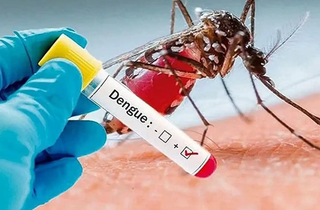This surge has coincided with a critical shortage of insect repellent, a crucial tool for preventing the disease.
Manufacturers misjudged the demand for repellent, leading to insufficient production to meet the current surge in cases. The lengthy production process further exacerbates the problem, leaving store shelves bare and online prices inflated.
The government acknowledges the "bottleneck" in production and promises a swift resolution. However, many citizens, particularly in Buenos Aires, remain apprehensive as the outbreak continues unabated.
Experts point to global warming and the El Nino phenomenon as contributing factors to the severity of the current dengue season. These factors create ideal breeding grounds for mosquitos, the carriers of the virus.
Dengue fever, while not always severe, can be debilitating and even deadly. Argentina's health ministry has confirmed fatalities across all age groups, with the elderly most vulnerable.
Hospitals are reporting an influx of patients exhibiting symptoms like high fever, severe headaches, swollen glands, and rashes.
Argentina is not alone in its struggle. The Pan American Health Organization (PAHO) warns of a potentially record-breaking outbreak across the Americas. Brazil and Paraguay are also experiencing a surge in dengue cases, with over 3.5 million infections and 1,000 deaths reported in the region.
Public health officials are calling for a coordinated regional response to combat the outbreak. This includes increased production and distribution of repellent, public awareness campaigns, and mosquito control measures.
Argentina's dengue crisis underscores the importance of public health preparedness for mosquito-borne diseases. Strengthening forecasting models, diversifying supply chains for essential medications, and investing in mosquito control initiatives are crucial steps.
The global community must also address the underlying environmental factors contributing to the rise of mosquito-borne illnesses.
This situation demands immediate action and long-term solutions to prevent similar crises in the future. (ILKHA)



 Dünya
Dünya
 Güncel
Güncel
 Güncel
Güncel
 Güncel
Güncel
 Güncel
Güncel
 Dünya
Dünya
 Dünya
Dünya
 Güncel
Güncel
 Dünya
Dünya
 Dünya
Dünya





